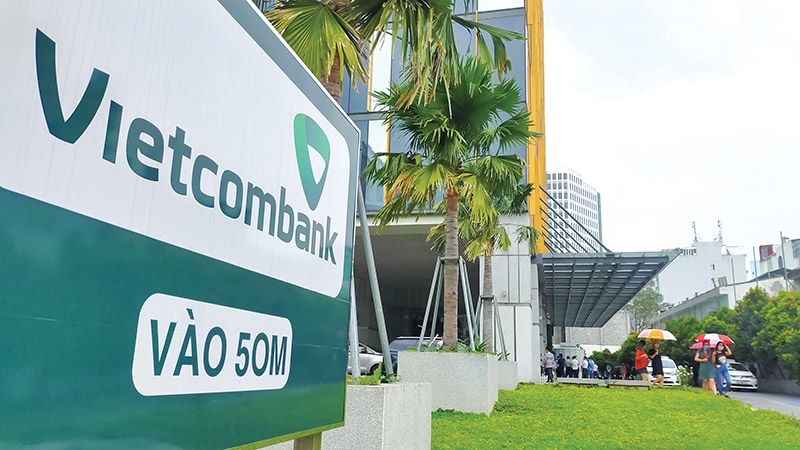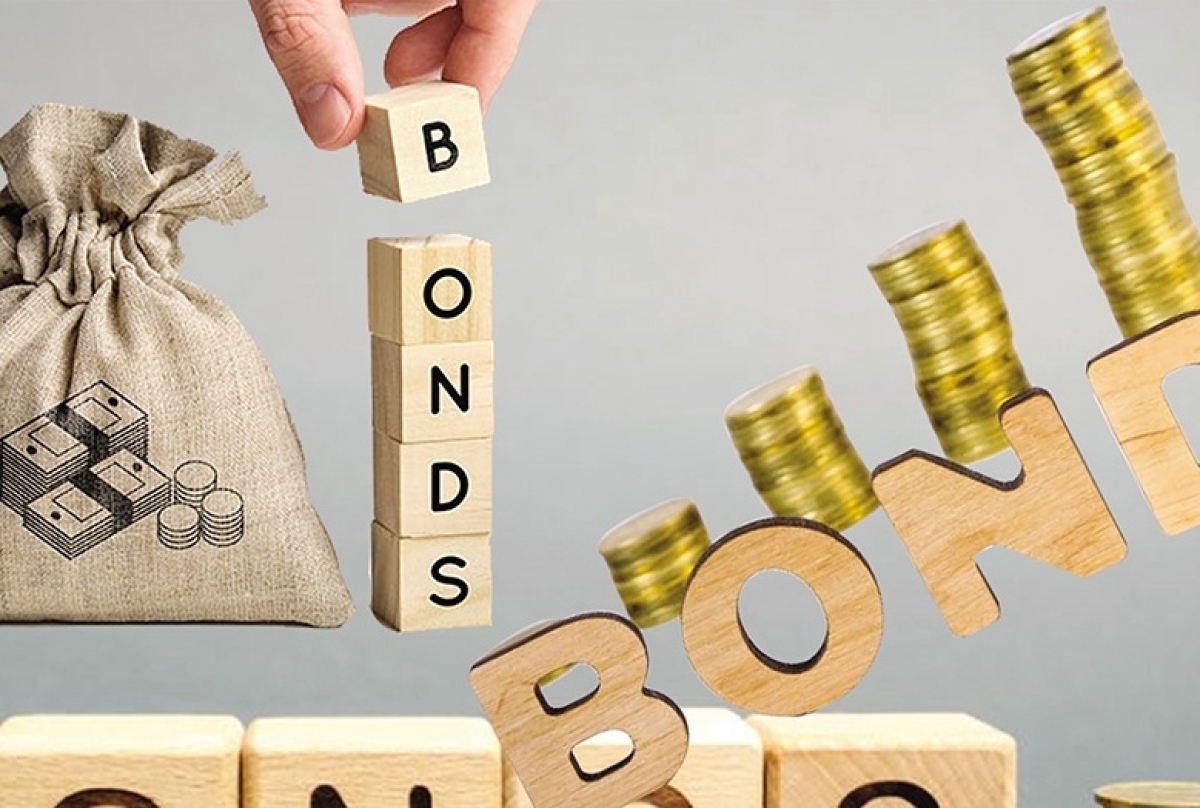INTERNATIONAL INVESTMENT
AND PORTAL
 Vietcombank is looking to acquire at least one weak bank to help increase its own assets, Photo: Le Toan
Vietcombank is looking to acquire at least one weak bank to help increase its own assets, Photo: Le Toan
Military Joint Stock Bank (MB) and Vietcombank are believed to be prospective purchasers of struggling banks including Ocean Bank, GPBank, and CBBank, which are subject to special supervision by the central bank.
After an acquisition, MB’s distribution network could increase to over 400 branches nationwide, helping to save time and investment costs as well as improve customer experience, according to MB’s retail and digital transformation strategies.
The State Bank of Vietnam (SBV) may allow MB to expand its credit limit and offer preferential loans. Tanh Tran, financial analyst at Yuanta Securities, noted, “Our outlook is optimistic on the possibility of MB purchasing. It will have financial exposure to the acquired bank but will not have to consolidate this troubled institution into its own financial statements.”
Therefore, Tran added, the acquisition will not impair MB’s growth-related key performance indicators as reported to the SBV, such as non-performing loans, capital adequacy ratio, and loans-to-deposits. “As such, the acquisition is likely to be accretive, assuming as we do an effective restructuring under MB management,” he noted.
Luu Trung Thai, vice chairman and CEO of MB, said that after restructuring has been implemented, MB can consolidate and sell to another credit institution, or divest it via an initial public offering. “The transfer would help MB to capitalise on more emerging prospects for fast-scale expansion, thus enhancing its market presence,” Thai said. “MB would transfer to credit institutions a number of high-quality loans to assure this bank’s operational capacity and debt quality.” The weak bank’s current non-performing loan ratio is around 47 per cent.
Similar to MB, Vietcombank plans to take over and restructure one weak bank. Vietcombank will have financial exposure to the purchased bank, but the distressed institution will not need to be consolidated into its own financial reporting. Therefore, the purchase will not negatively affect the growth-related ratios of Vietcombank. As a result, the transaction is projected to be accretive, assuming a successful reorganisation under its supervision.
Le Hanh Quyen, analyst at KB Securities, predicted Vietcombank would benefit from acquiring a weak bank under the restructuring scheme of the SBV, as the central bank would not limit the annual credit growth of Vietcombank. The acquisition could increase Vietcombank’s growth rates of assets, credit, and branch networks, thereby improving its competitiveness.
“Customer loans may exceed 15 out of 25 per cent of Vietcombank’s core capital. The bank can lend to key projects in foreign currencies in the medium and long term. Moreover, Vietcombank can also lend to international credit projects while handling accumulated losses of the weak bank,” Quyen noted.
After restructuring the weak bank, Vietcombank can consolidate, maintain it as a subsidiary bank, or sell it to another credit institution, Quyen added. “Vietcombank can also pay stock dividends from the retained earnings after setting aside funds to raise equity capital during the years of handling accumulated losses of the weak credit institution,” she told VIR.
According to current regulations, Vietcombank is not required to consolidate the weak credit institution into its financial statements.
Furthermore, Vietcombank must contribute capital to the weak credit institution while handling its accumulated losses, and being responsible for the liquidity and financial obligations of the credit institution under the restructuring scheme of the SBV.
In the same vein, Vietnamese conglomerate Bamboo Capital Group (BCG), which acquired non-life insurer AAA Insurance last year, is reportedly involved in the reorganisation of Eximbank, which has been embroiled in a long-running battle with Japanese investor SMBC.
Pham Minh Tuan, BCG vice chairman and deputy CEO, noted that it is aspiring to be a prominent conglomerate, and that the firm’s increasing footprint in the banking sector is consistent with its long-term ambitions.
In mid-May, AAA Insurance and Eximbank inked a comprehensive agreement to offer exclusive bancassurance services through the bank’s nationwide network. BCG Financial, a subsidiary of BCG, is also mulling over plans in the fintech sector, particularly the payment landscape, to complement its ecosystem.
Meanwhile, Le Thu Thuy, CEO of BRG-backed SeABank, said the lender is considering making an offer to sell around 13.78 per cent of its charter capital, according to Bloomberg. It has not as of yet settled on a particular agenda for the potential deal.



















